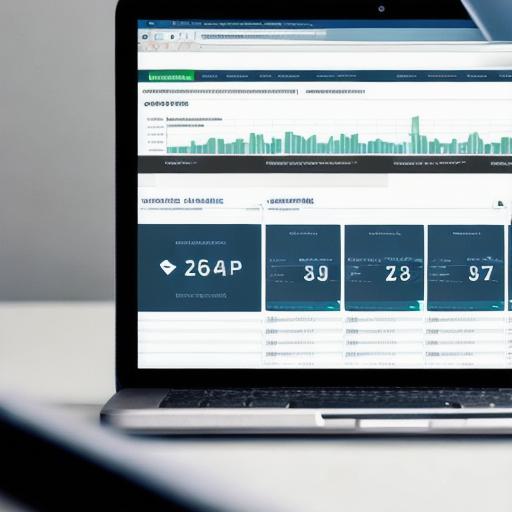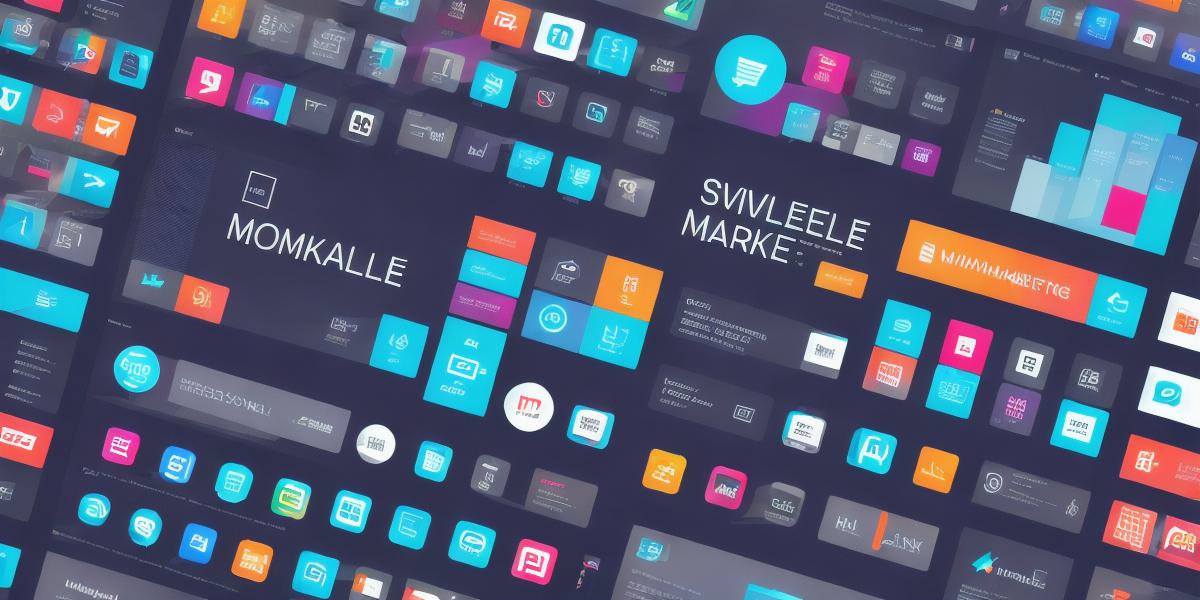Title: The Ultimate Guide to Marketing Tools for Businesses: Boost Your Engagement and ROI with These Proven Strategies
Are you tired of struggling to get your business off the ground? Are you looking for ways to increase engagement and drive more traffic to your website? Look no further than marketing tools. With the right set of tools, you can effectively reach your target audience, boost your brand awareness, and ultimately increase your ROI.
In this ultimate guide to marketing tools for businesses, we’ll be exploring some of the most effective strategies and tools out there. From social media marketing to email marketing, content marketing, and more, we’ll take a deep dive into what works and what doesn’t. So sit back, relax, and get ready to learn how you can take your business to the next level with these proven strategies.

I. Introduction
Marketing is a crucial part of any business. It’s the driving force behind engagement, brand awareness, and ultimately, sales. But with so many marketing tools out there, it can be difficult to know which ones are right for your business. That’s where we come in. In this guide, we’ll explore some of the most effective marketing strategies and tools that you can use to boost your engagement, drive more traffic to your website, and ultimately increase your ROI.
II. Social Media Marketing
Social media is one of the most powerful marketing tools out there. With over 3.7 billion people using social media worldwide, it’s no surprise that businesses have started to take advantage of this massive audience. Here are some of the most effective social media platforms for businesses:
- TikTok
When it comes to social media marketing, it’s all about creating engaging and shareable content that resonates with your target audience. This could be anything from eye-catching images and videos to thought-provoking posts and articles. The key is to create content that your followers will want to share with their own networks, effectively amplifying your reach and driving more traffic to your website.
III. Email Marketing
Email marketing is another highly effective marketing tool that can be used to reach and engage with your target audience. Here are some of the benefits of email marketing:
- Cost-effective: Email marketing is one of the most cost-effective ways to reach your target audience, with a high ROI for every dollar spent.
- Targeted: With email marketing, you can easily segment your audience and send targeted messages to specific groups, ensuring that your content is highly relevant to each individual.
- Personalized: Email marketing allows you to personalize your messages based on each recipient’s interests, behavior, and preferences.
- Effective: Studies have shown that email marketing is one of the most effective channels for generating leads, driving conversions, and increasing sales.
To get started with email marketing, you can use a variety of tools such as Mailchimp, ConvertKit, or Constant Contact. These tools allow you to create and send targeted emails, track your campaigns’ performance, and analyze your results to improve your future efforts.
IV. Content Marketing
Content marketing is another highly effective way to reach and engage with your target audience. Here are some of the benefits of content marketing:
- Builds brand awareness: By creating valuable and informative content, you can establish yourself as a thought leader in your industry, building brand awareness and trust with your audience.
- Drives traffic to your website: Content marketing is a great way to drive traffic to your website, especially if you use search engine optimization (SEO) techniques to optimize your content for search engines.
- Generates leads: High-quality content can help generate leads by attracting potential customers who are looking for information or solutions related to your business.
- Increases conversions: By providing valuable and informative content, you can increase the likelihood that your audience will take action, such as making a purchase or filling out a lead form.
To get started with content marketing, you can create a variety of different types of content, including blog posts, infographics, videos, and social media posts. The key is to create content that is informative, engaging, and valuable to your target audience. You can also use tools such as Google Analytics to track your content’s performance and measure the impact it has on your business.
V. Search Engine Optimization (SEO)
Search engine optimization (SEO) is a crucial part of any marketing strategy, as it allows you to rank higher in search engine results pages (SERPs) and drive more traffic to your website. Here are some of the benefits of SEO:

- Increases visibility: By optimizing your website for search engines, you can increase your visibility online, making it easier for potential customers to find you.
- Drives organic traffic: SEO is a great way to drive organic traffic to your website, without having to pay for advertising or social media promotion.
- Increases conversions: By optimizing your website for search engines, you can increase the likelihood that visitors will take action and convert into customers.
- Cost-effective: SEO is one of the most cost-effective ways to drive traffic to your website, with a high ROI for every dollar spent.
To get started with SEO, you can use a variety of techniques, including keyword research, on-page optimization (such as optimizing title tags and meta descriptions), and off-page optimization (such as building backlinks). You can also use tools such as Google Analytics to track your website’s performance and measure the impact of your SEO efforts.
VI. Pay-Per-Click Advertising (PPC)
Pay-per-click advertising (PPC) is another highly effective marketing tool that can be used to reach and engage with your target audience. Here are some of the benefits of PPC:
- Targeted: With PPC, you can target specific keywords or phrases related to your business, ensuring that your ads are shown only to potential customers who are actively searching for your products or services.
- Cost-effective: While PPC can be more expensive than other marketing tools, it’s often highly cost-effective, with a high ROI for every dollar spent.
- Measurable: With PPC, you can track the performance of your ads and adjust your campaigns in real-time, ensuring that you are getting the best possible results.
- Scalable: PPC allows you to scale your advertising efforts quickly and easily, making it easy to reach new customers and grow your business.
To get started with PPC, you can use a variety of platforms, including Google Ads, Bing Ads, Facebook Ads, and Instagram Ads. These platforms allow you to create targeted ads and track their performance using real-time analytics.
VII. Conclusion
In conclusion, there are many marketing tools out there that businesses can use to boost engagement and drive more traffic to their website. Whether it’s social media marketing, email marketing, content marketing, SEO, or PPC, the key is to find the strategies and tools that work best for your business and target audience. By doing so, you can increase your ROI, build brand awareness, and ultimately take your business to the next level. So what are you waiting for? Start exploring these strategies today and see the results for yourself!
FAQs:
1. What is the best social media platform for businesses?
The best social media platform for businesses depends on your target audience and goals. For example, if your target audience is primarily interested in visual content, Instagram or Pinterest may be a good choice. If your target audience is more interested in news and information, Twitter or Facebook may be a better fit.
2. How do I track the performance of my email campaigns?
To track the performance of your email campaigns, you can use tools such as Mailchimp, Constant Contact, or Google Analytics. These tools allow you to track metrics such as open rates, click-through rates, and conversion rates, and adjust your campaigns in real-time based on their performance.
3. What is the best way to optimize my website for search engines?
To optimize your website for search engines, you can use a variety of techniques, including keyword research, on-page optimization (such as optimizing title tags and meta descriptions), and off-page optimization (such as building backlinks). You can also use tools such as Google Analytics to track your website’s performance and measure the impact of your SEO efforts.
4. How do I create effective PPC campaigns?
To create effective PPC campaigns, you should start by defining your target audience and goals. Then, research keywords and phrases related to your business, and create targeted ads that are relevant and engaging to your audience. Finally, track the performance of your campaigns using real-time analytics and adjust them in real-time based on their performance.




